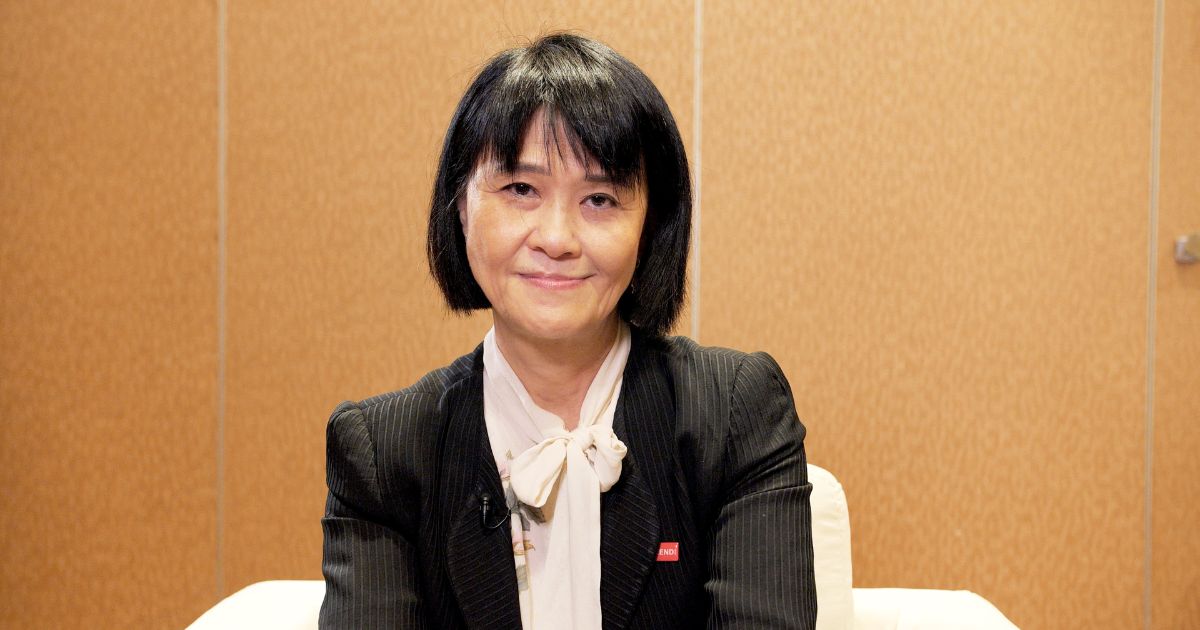In CNBC’s ‘My Biggest Lessons’, Eva Chen, CEO of Japanese cyber-security company Trend Micro, revealed that she has lepidopterophobia [fear of butterflies].
Largely, the fear of butterflies has played a significant role in her leadership approach and decision-making processes in business.
She said “When I was little, I was scared of butterflies. I don’t know why. Even now I think butterflies look very strange.”
It still haunted her as an adult and sometimes made her unsure of herself in dealing with challenging situations. But upon joining Trend Micro as its leader, she vowed to face it head-on.
Chen’s rather strange approach to overcoming the fear of butterflies by putting herself in an environment filled with preserved butterflies.
“I put them [the preserved butterflies] in my room, everywhere. I would make myself see the butterflies every day and then I started wearing everything that is shaped like a butterfly,” said Chen.
Having purposely confronted this fear however became a defining moment for her; “Once I did that, I overcame my fear, then I believed in myself,” she said.
Her strategy was not merely a personal triumph but a pivotal moment that empowered her in the realm of business.
What is more interesting is how the symbolism of butterflies changed for Chen. She went from fearing them to seeing them as representative of the ways she had overcome challenges throughout life.
Therefore today she wears butterfly shaped earrings and other accessories as a way of reminding herself about her victory over fear for these creatures.
“When I have a difficult decision to make or a tough interview lined up, I wear my butterfly earrings. Like (touching) ‘I can do it’, ‘I can overcome my fear’,” Chen said.
It gives confidence and reminds me that anytime there’s something difficult or challenging; I will be able to do it.” These earrings became something like talismans serving as tangible reminders that challenge could be faced head-on and conquered.
Chen’s unorthodox way of facing her fear of butterflies has motivated many other employees within the company.
This story is beyond just Trend Micro and it speaks to the wider world about the importance of dedication and resolve.
Her analogy has been accepted by workers as a leading example in addressing their fears and doubts for a stronger organization that can weather any storm.
The Power of Symbolism: A CEO’s Fear of Butterflies Conquered, Lessons for All
Eva Chen’s journey from fearing butterflies to using them as symbols for strength brings forth great lessons about leadership, resilience and personal development.
It means therefore that confronting one’s fears is important for both personal and professional growth.
Additionally, Chen no longer saw butterflies in the same way and this helped her overcome challenges in businesses world.
Embracing her fear of butterflies showed her how much it can be applied on daily basis. This indicates that accepting one’s vulnerability, hence turning them into one’s strength leads to transformations.
Moreover, the CEO opening up about her own personal struggle resonated deeply with people grappling with their own fears and insecurities.
The narrative has since become an inspirational story where people are compelled to face their fears so that they can translate them into platforms of empowerment.
Inspiring a Culture of Empowerment at Trend Micro
Leadership of Chen in Trend Micro has only improved on technology, but it also built a culture of resilience and fearlessness in the company.
In her journey, employees take inspirations from her, resulting in an environment that promotes facing fears and supports individual growth.
The butterfly metaphor has gone beyond Chen’s personal journey to become a rallying point within the firm.
It is a reminder that overcoming fears is not just an individual feat but a collective strength that drives the whole organization.
Eva Chen revealed her fear for butterflies with great insight into how it can be transformed; hence this is her path to survival.
Her odyssey not only underscores the importance of personal resilience but also provides an inspiring example of how to turn vulnerability into strength for career advancement.
Chen’s story goes beyond cyber-security; instead, she offers a compelling narrative for people to confront their fears, transform weaknesses into strengths, and ultimately come out stronger and more empowered than ever before.




























